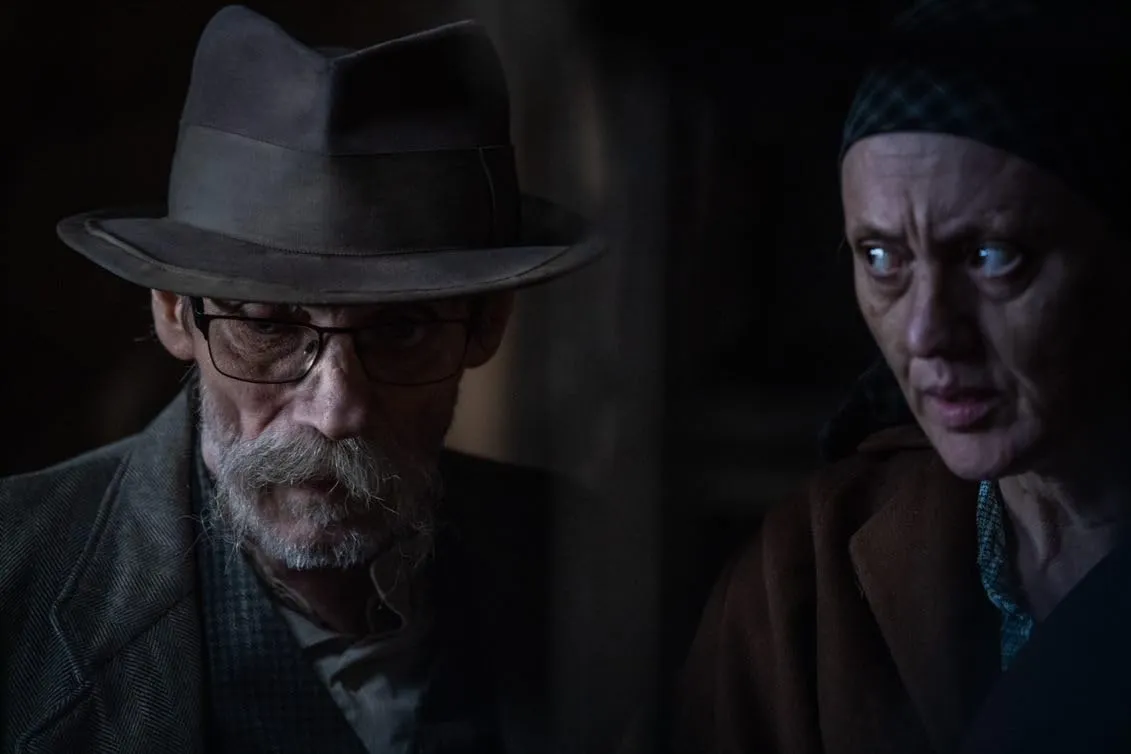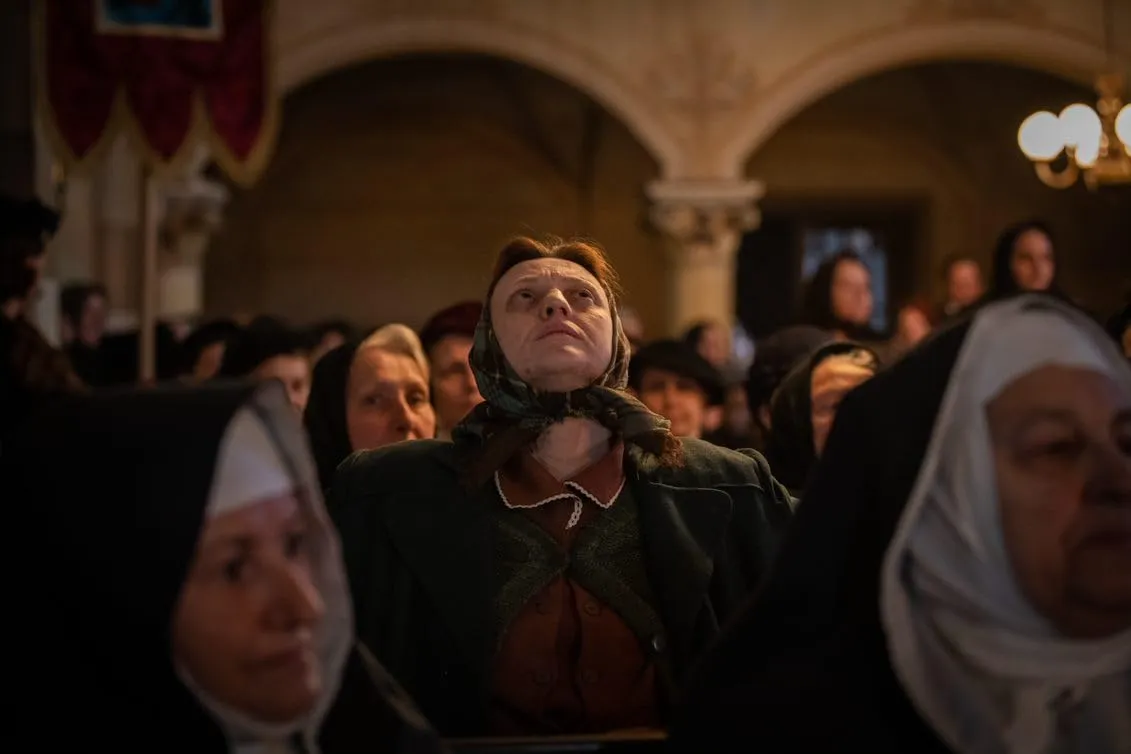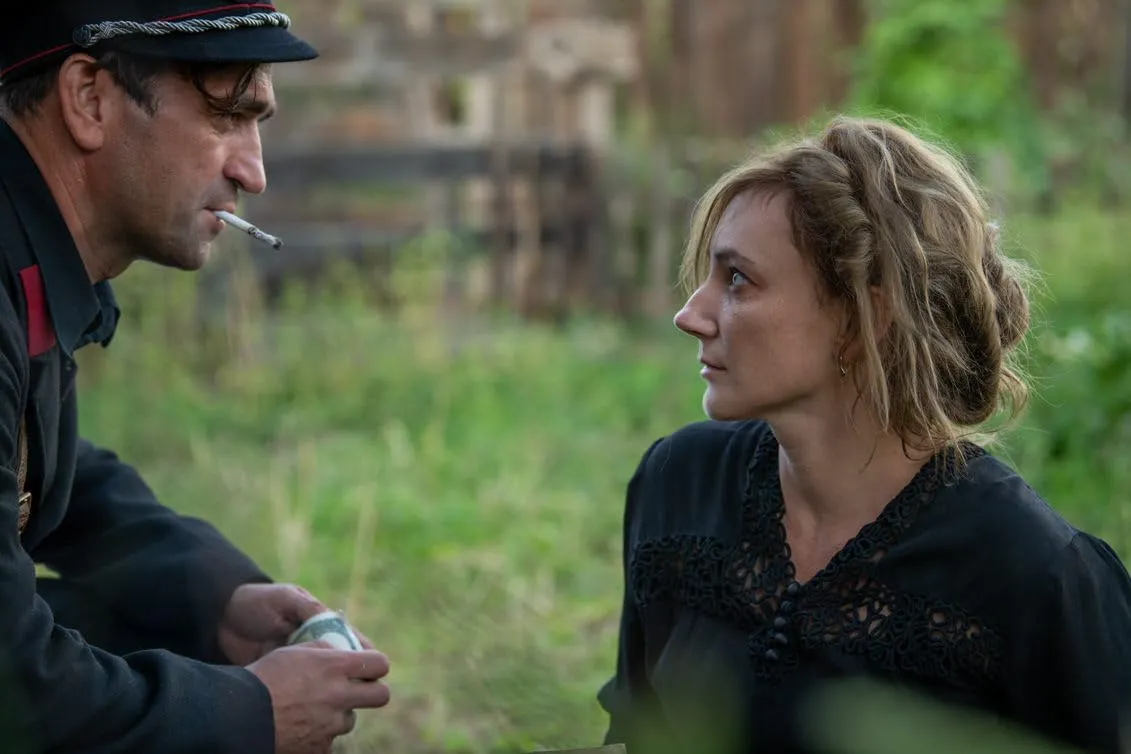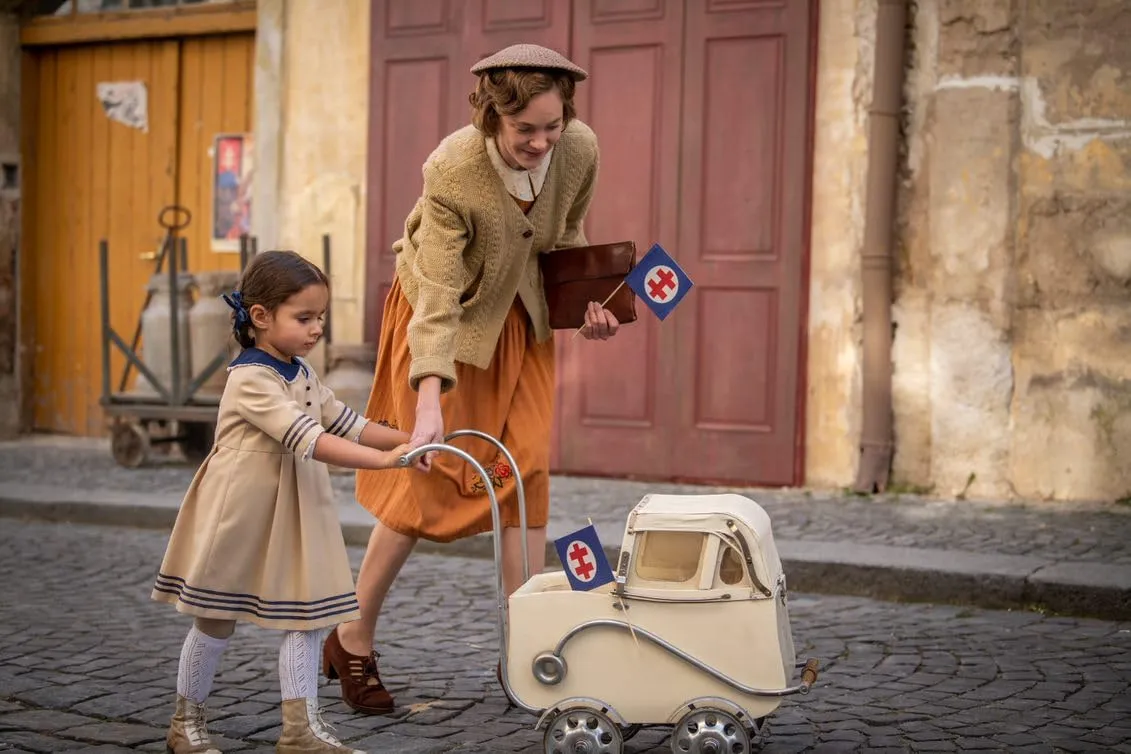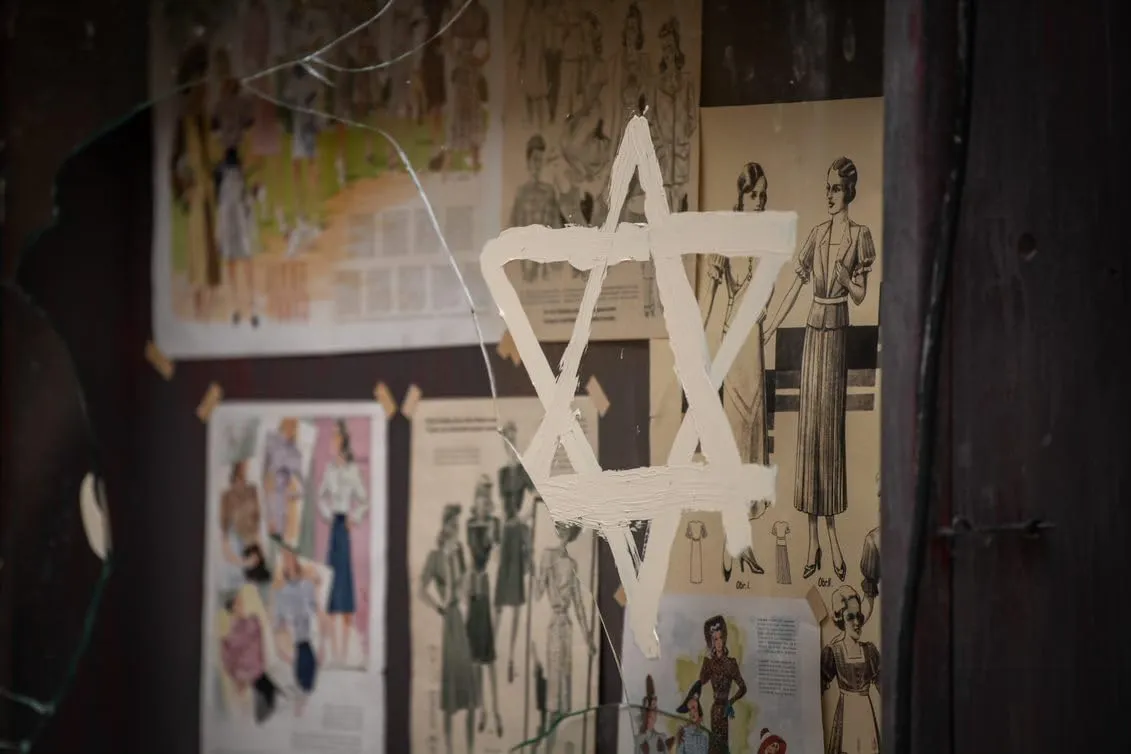In 1942, Iveta Grófová’s film “The Hungarian Dressmaker” depicts Slovakia during World War II. The Slovak-Hungarian border region pulses with national tensions and political conflict. The Nazi-backed Slovak state creates an environment where personal identity crumbles under oppressive systems.
Marika, a widow with Hungarian roots, struggles after her dressmaking salon closes. Her life exists in a delicate balance until she encounters Šimon, a Jewish boy. By choosing to protect him during dangerous times, Marika transforms her vulnerable situation. Her choice introduces intense personal and political complexity to her world.
The film explores how individuals survive amid extreme social pressure, revealing the quiet courage of those who resist during dark historical moments. Marika’s protection of Šimon becomes an act of profound human connection against a backdrop of systemic violence and division.
Plot Overview: The Fragility of Survival in a Divided World
Grófová’s film centers on Marika, a widow in a Slovak village during World War II, who chooses to shelter Šimon, a Jewish boy hidden in her barn. Her discovery of Šimon marks a critical moment that shifts both the story and Marika’s inner struggle.
Plagued by loss, economic strain, and terror of Nazi occupation, Marika’s protection of Šimon stems from raw survival instinct and a deep human need to preserve her humanity amid crushing oppression.
Her choice feels complicated and uncertain. Marika lacks traditional heroic qualities—her approach is hard, reluctant, revealing the intricate nature of human experience during extreme periods. The initial relationship between Marika and Šimon feels cold and transactional, driven more by desperate necessity than emotional connection.
Gradually, their connection transforms. War isolates them, creating a fragile bond that resists the brutal external world. Marika’s interactions reveal her complexity—moments of impatience and harsh protection show the psychological weight of survival. She makes challenging decisions, such as having Šimon sleep with pigs to keep him hidden, demonstrating the raw survival tactics required during wartime.
The story intensifies with Slovak Nazi officer Dusan’s arrival, introducing another layer of moral tension. Marika’s interactions with Dusan shift between guardedness and reluctant intimacy, exploring intricate dynamics of power, fear, and human survival.
Character Analysis: The Weight of Choices and the Burden of Survival
Marika emerges as a complex character in The Hungarian Dressmaker. A widow in war-torn Slovakia, she carries deep scars of loss and survival. Her choice to shelter Šimon, a young Jewish boy, sparks a profound psychological journey.
Marika appears distant and reluctant initially, treating Šimon more like an inconvenience than a child needing protection. Alexandra Borbély’s performance captures Marika’s emotional restraint—a shield against overwhelming challenges. Her stoicism masks deep internal struggles. Subtle moments reveal her emotional vulnerability, though always tinged with guilt and fear.
The connection between Marika and Šimon begins as a desperate survival strategy. She forces him to sleep with pigs, highlighting her emotional disconnection. Gradually, their relationship shifts. Marika confronts Šimon’s innocence, her hardened exterior softening incrementally.
Šimon, portrayed by Nico Klimek, becomes a powerful character in his own right. He navigates trauma with remarkable resilience. His perspective reveals the brutal reality of war through a child’s eyes. Šimon adapts quickly, balancing fear and curiosity. His emotional growth reflects the stark demands of survival, presenting a raw exploration of human endurance during extreme circumstances.
Their relationship reveals the complex emotional landscape of survival—a delicate dance between protection, fear, and unexpected connection.
Thematic Exploration: Survival, Identity, and the Burden of Choice
The Hungarian Dressmaker explores deep moral dilemmas within wartime Slovakia. Marika’s story reveals the intricate battle between survival and ethical choices. Her decision to shelter Šimon emerges from a complex mix of fear, guilt, and self-protection.
Marika’s actions reflect the brutal reality of Nazi occupation. She forces Šimon to sleep with pigs, treating him with harsh severity that speaks to survival’s raw demands. Her character defies simple moral classifications—she embodies the complicated human response to extreme threat.
The film examines identity through linguistic and cultural tensions. Marika’s Hungarian language becomes a marker of cultural connection and isolation. Her speech reveals the painful divisions within Slovak society, showing how personal identity intersects with political upheaval.
Language and cultural heritage create a sensitive landscape of survival. Marika struggles with belonging, caught between different cultural identities. The Nazi occupation strips away comfortable boundaries, forcing individuals to make impossible choices.
Her personal struggle reflects wider societal tensions. External pressures of war and oppression shape her internal conflict. Each decision becomes a complex negotiation between individual survival and broader human connections.
The narrative strips away comfortable narratives of heroism, presenting instead a raw exploration of human survival. Marika’s journey exposes the deep psychological toll of resisting destruction while attempting to maintain human dignity.
Cinematography & Visual Style: A World on the Edge of Collapse
Martin Štrba’s cinematography creates a powerful emotional landscape in The Hungarian Dressmaker. Rack focus techniques bring an unsettling energy to the film. The camera shifts between subjects, generating a disorienting experience that echoes the characters’ internal struggles.
Viewers feel trapped within Marika’s world. Each visual transition heightens the sense of impending threat. The technique forces audiences to remain alert, mirroring the characters’ constant state of anxiety and uncertainty.
The film’s color palette speaks volumes. Browns and grays dominate the screen, creating a bleak visual environment. Washed-out hues capture the desolation of wartime Slovakia, stripping away hope and vitality.
Muted colors become a character themselves. They reflect Marika’s emotional state—stripped of warmth, filled with tension. The visual approach transforms the screen into a psychological landscape, where every shade communicates silent suffering.
Štrba’s cinematographic choices transcend simple period representation. Each frame becomes a meditation on survival, capturing the emotional weight of human experience during extreme circumstances. The visual language speaks without words, revealing the deep psychological impact of war and personal survival.
Emotional and Political Tone: A Quiet Fury Beneath the Surface
The Hungarian Dressmaker captures emotional depth through restraint. Grófová crafts a film where tension builds through subtle moments. Marika’s inner world emerges through fleeting glances, quiet tremors, and weary movements.
The film eschews dramatic outbursts. Each gesture speaks volumes about human struggle during wartime. Silence becomes a language of its own, revealing the characters’ internal battles.
Political tensions simmer beneath the surface. The Slovak-Hungarian divide creates a complex landscape of survival. Marika’s heritage separates her from local villagers increasingly drawn to Nazi ideology.
Language becomes a weapon of division. Conversations carry unspoken threats. Characters navigate a world where survival depends on careful interactions and hidden loyalties.
Marika’s choice to protect Šimon emerges as a quiet rebellion. Her actions challenge the surrounding darkness, revealing human connection amid violence. The film explores how individuals resist when institutional powers crush personal dignity.
The narrative strips away simple heroes and villains. Instead, it presents a nuanced portrait of human survival—where each choice carries immense weight. Moral lines blur as characters fight to preserve their humanity against overwhelming destruction.
Conclusion: A Quiet, Unyielding Reflection on War and Survival
The Hungarian Dressmaker creates a lasting impression through its exploration of human survival. The film captures the intricate emotional landscape of wartime experience. Subtle character transformations reveal deep psychological struggles.
Marika’s story resists traditional narratives of heroism. Her journey exposes the complex moral challenges individuals face during extreme circumstances. The film strips away simplistic interpretations of courage and survival.
Characters wrestle with impossible choices. Each decision carries profound weight. The narrative explores how people maintain humanity when surrounded by violence and oppression.
The Slovak-Hungarian divide becomes a backdrop for personal struggle. Language, heritage, and survival intertwine. Individual experiences reveal the deep fractures within a community torn apart by war.
Grófová crafts a raw, intimate portrayal of human endurance. The film challenges viewers to consider the psychological toll of survival. Silent moments speak more powerfully than grand statements about resistance.
Survival emerges as a deeply personal act of defiance. Characters navigate a world where moral lines blur, where protection means risking everything. The film reveals the strength found in quiet, personal resistance against overwhelming destruction.
The Review
The Hungarian Dressmaker
The Hungarian Dressmaker is a quiet yet powerful exploration of survival, moral ambiguity, and the personal toll of war. Through restrained performances, a claustrophobic visual style, and an emotionally complex narrative, the film delves deep into the intricacies of human choices in the face of historical turmoil. Its understated approach to the Holocaust genre offers a unique perspective on the psychological costs of survival, avoiding melodrama for a more intimate and thought-provoking experience.
PROS
- Emotionally complex, with a deep exploration of moral ambiguity.
- Strong performances, particularly from Alexandra Borbély as Marika.
- Cinematography effectively conveys claustrophobia and psychological tension.
- A nuanced, human-centered approach to survival in wartime.
CONS
- Its slow pace and restrained emotional tone may not appeal to all viewers.
- Some may find the lack of overt action or drama underwhelming.









































